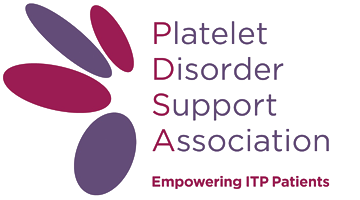Your Voice Matters. Let Data Tell Your Story.
We are pleased to announce the launch of PDSA’s new 2.0 version of the Immune Thrombocytopenia (ITP) Natural History Study Registry! The ITP Natural History Study Registry creates a platform for patients around the world to strengthen their voices and share information about ITP and other platelet disorders, diseases that cause a low platelet count, or impacts the platelets in some way ITP and many other platelet disorders currently have no cure. Designed with the input of scientists and patients, this global resource will provide data for researchers to use to advance drug development and treatment options to help improve ITP and other platelet disorders patient care. Join now and let your data tell your story!
Read more >